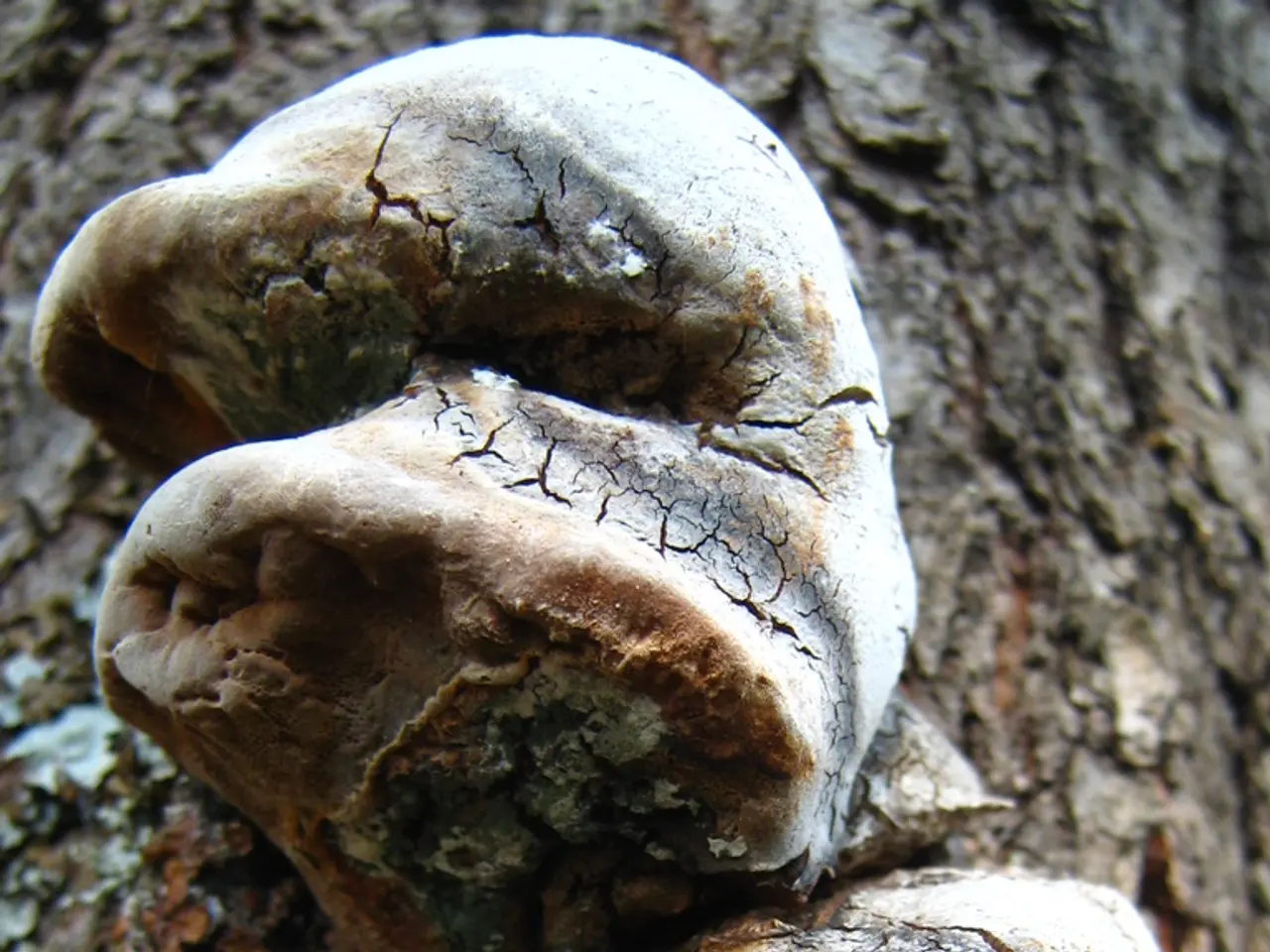Yeast Infections of the Anus: Symptoms, Remedies, and Root Causes
Anal yeast infections, also known as candidiasis, can cause persistent itching, burning sensations, and other uncomfortable symptoms. A recent review of ten randomized control trials suggests that probiotics may enhance the effectiveness of traditional antifungal treatments [1].
One of the most common causes of yeast infections is Candida species, which thrive in warm, moist environments and can be encouraged by wearing tight or restrictive clothing. While some natural remedies show promise, robust clinical trial data specifically for anal yeast infections are limited.
Baking soda baths and probiotics are commonly recommended as potential treatments due to their known effects and safety profile. Soaking in a lukewarm bath with baking soda can change the local pH and create an environment less favorable to yeast growth. Baking soda has known antibacterial and antifungal properties, including activity against Candida [1]. Consuming probiotics through supplements or fermented foods may help restore the balance of normal flora and inhibit yeast overgrowth [1].
However, more targeted clinical research is required to confirm the effectiveness of these remedies specifically for anal yeast infections. For instance, while probiotics may effectively inhibit the growth of Candida tropicalis and Candida albicans, the most common causes of yeast infections, few high-quality clinical trials assessing their effectiveness for treating yeast infections exist [1].
In one study, researchers observed that coconut oil prevented the growth of Candida ablicans more effectively than some probiotics [1]. Coconut oil possesses powerful antimicrobial properties, with medium-chain fatty acids, particularly lauric acid, responsible for these effects. However, when compared with popular over-the-counter (OTC) treatments, such as ketoconazole and chlorhexidine, coconut oil showed weaker antifungal effects [1].
Natural fungal extracts like those from *Aspergillus niger* have demonstrated antifungal activity comparable to fluconazole in laboratory settings, suggesting potential for future therapeutic development. However, clinical trials in humans are needed to confirm their efficacy [2].
It is important to note that while some natural remedies may provide symptomatic relief, they do not necessarily treat the infection itself. A cold compress can provide soothing relief from itching and inflammation, but it does not address the underlying cause [1].
If symptoms persist or worsen, it is crucial to seek medical advice. People can treat anal yeast infections with OTC antifungals or prescription medication. Treatment options include clotrimazole, miconazole, boric acid suppositories, butoconazole, nystatin, diflucan, and terconazole [2].
To reduce the risk of developing anal yeast infections, people can practice proper bathroom hygiene, avoid scented hygiene products, and wash after swimming and exercising. Although yeast infections are not considered sexually transmitted diseases, they can be transmitted through anal sex without using a condom or another barrier contraceptive [1].
References: [1] Moynihan, P. G., & Gagnon, J. J. (2019). Probiotics and prebiotics for the prevention and treatment of vaginal and vulvovaginal candidiasis. The Cochrane Database of Systematic Reviews, 4, CD013115. [2] Sobel, J. D. (2019). Natural products for the treatment of vulvovaginal candidiasis. Obstetrics and Gynecology Clinics of North America, 46(3), 349-364.
- Anal yeast infections, also known as candidiasis, can be a persistent issue, causing itching and burning sensations.
- Candida species, thriving in warm, moist environments, is one of the most common causes of these infections.
- Tight or restrictive clothing can encourage these fungal infections.
- Probiotics may enhance the effectiveness of traditional antifungal treatments, according to a recent review of ten randomized control trials.
- Baking soda baths are considered a potential treatment due to its antibacterial and antifungal properties.
- Consuming probiotics through supplements or fermented foods may help restore the balance of normal flora and inhibit yeast overgrowth.
- More targeted clinical research is required to confirm the effectiveness of these remedies specifically for anal yeast infections.
- Coconut oil has been observed to prevent the growth of Candida albicans more effectively than some probiotics in one study.
- Coconut oil possesses powerful antimicrobial properties, with medium-chain fatty acids responsible for these effects.
- When compared with popular over-the-counter treatments, such as ketoconazole and chlorhexidine, coconut oil showed weaker antifungal effects.
- Natural fungal extracts, such as those from Aspergillus niger, have demonstrated antifungal activity comparable to fluconazole.
- Clinical trials in humans are needed to confirm their efficacy.
- A cold compress can provide temporary relief from itching and inflammation, but it does not address the underlying cause.
- If symptoms persist or worsen, seeking medical advice is crucial.
- OTC antifungals or prescription medication can be used to treat anal yeast infections.
- Clotrimazole, miconazole, boric acid suppositories, butoconazole, nystatin, diflucan, and terconazole are treatment options.
- Proper bathroom hygiene, avoiding scented hygiene products, and washing after swimming and exercising can reduce the risk of developing anal yeast infections.
- Anal yeast infections are not sexually transmitted diseases, but they can be transmitted through anal sex without using a condom or another barrier contraceptive.
- Health and wellness in the workplace is becoming increasingly important, with science-based solutions for medical conditions and chronic diseases.
- Women's health, including vaginal health, is a significant focus in this area.
- Type 2 diabetes, as a chronic disease, can be predicted and managed with the right science and technology.
- Science and technology play a crucial role in the management of multiple sclerosis, a neurological disorder.
- Depression, a mental health issue, can be managed effectively with therapeuties and treatments, supporting a better quality of life.
- AQUA, a skincare brand, emphasizes the importance of water in maintaining skin health and promoting beauty.
- Fungal infections of the female reproductive system can impact women's health and require specific treatments.
- Medications for ulcerative colitis, a digestive disorder, can help manage symptoms and improve overall health.
- Lifestyle choices play a significant role in the management of respiratory conditions, such as asthma and COPD.
- Eye health is essential, with regular check-ups and proper care crucial for maintaining vision.
- Hearing loss can be mitigated with various treatments and therapies, supporting better communication and quality of life.
- Health and wellness, fitness, and exercise are interconnected, encouraging overall well-being and disease prevention.
- Autoimmune disorders, such as psoriasis and lupus, require careful management and understanding to prevent flare-ups.
- Mental health is becoming an increasingly important aspect of overall health, with depression and anxiety affecting millions worldwide.
- Nutrition plays a vital role in the management of cardiovascular health, promoting a balanced diet and lifestyle.
- CBD oil is a promising therapeutic alternative for managing chronic pain and anxiety, with ongoing research investigating its potential.
- In addition to health benefits, technology has revolutionized various aspects of life, from smart home devices and wearables to data and cloud computing, making life easier, more efficient, and sustainable.






